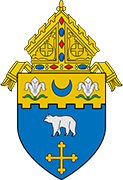Wills, Trusts and Bequests
“No one shall appear before the Lord empty-handed, but each of you with as much as he can give, in proportion to the blessings which the Lord, God has bestowed on you.” Deuteronomy 16:10, 16-17
Having a will or estate plan in place not only avoids confusion but can also support your parish, Catholic school, or other Diocesan organization. You’re options could include gifting:
- A percentage of one’s estate
- A specific amount
- Specific property, such as stocks, bonds or real estate
- Part or all of the residue of one’s estate – whatever is left after all beneficiaries have received their bequests
- A combination gift arrangement, such as a percentage plus the residue
What to know about bequests in a will or trust
- The most basic estate planning tools are wills and trusts. “Bequests” are established by wills and trusts.
- To make a bequest you will most likely engage an estate planning attorney to make sure all legal necessities are followed.
- Bequests are not payable until death, so they do not affect your assets or cash flow during your lifetime.
- You can change the provisions of your will or a revocable trust at any time.
- Charitable bequests are private. Your will is not filed or made public until your death.
- Trusts are never made public unless you instruct otherwise.
Please consult with your own attorney and other professional advisors regarding your personal tax and financial situation.
Bequest and Beneficiary Designations
Document: Statement of Bequest Intention
Identifying the parish, school, ministry or Diocese
When planning your estate, think about the institutions that have played a role in your life. This might be your parish, parish school, diocesan high school, or other ministry. You helped them during your life with time, guidance, and financial assistance. You endorse their mission and believe that they will continue to make a difference for good in the world far into the future. However, to eliminate any possible room for misinterpretation, it’s important to cite your beneficiary(ies) in the correct way.
Whether naming your parish, a school, ministry or the diocese to receive a bequest (e.g. will) or to be a beneficiary (e.g. life insurance), you can ensure that your intentions are understood by providing as much identifying information as possible. Ideally, state the Legal Name, (Tax ID # ), Address, City, State.
- To name the Diocese: Catholic Diocese of Kansas City – St. Joseph (Tax ID # 44-0546494), 20 West Ninth Street, Kansas City, Missouri 64105
- To name a parish, school or ministry: Contact the parish, school or ministry for their legal name, Tax ID # and the address. The legal name should be stated as “Catholic Church” not “Parish.”
You can search the Missouri Secretary of State’s website to find the legal name, but not the Tax ID or address. Remember to search for “Catholic Church” not “Parish.”
Every parish in the Diocese of Kansas City-St. Joseph is registered as a nonprofit corporation in the State of Missouri. If a school or ministry is not separately incorporated, you can instruct the parish or diocese to use the funds for the support of a specific program, school or ministry. It is a good idea to contact your beneficiaries listed, to ensure they understand what your wishes will be. This instruction is purely intended to alert your beneficiaries, and should not act to replace any step here.
Wording bequests:
Please consult an attorney or other professional to ensure accurate wording in your will or trust.
A general bequest will be worded similarly to “I give, devise and bequeath to the “Catholic Diocese of Kansas City-St. Joseph (ID # 44-0546494),” , (dollar amount, percent, residue, securities or property as described) for its general use and purposes as directed by its Ordinary.”
A designated bequest will be worded similarly to “I give, devise and bequeath to the “Catholic Diocese of Kansas City-St. Joseph,” 20 West Ninth Street, Kansas City, Missouri 64105, (dollar amount, percent, residue, securities or property as described) for the specific purposes of (parish or institution and complete address and specific purpose, if any).”
Naming Beneficiaries:
You can designate beneficiaries to receive your financial assets (e.g. life insurance, retirement plan assets, etc.). Most banks, insurance companies, or other financial institutions (including managers of IRA accounts) can send you a “beneficiary designation form” upon request.
The property passes to the beneficiary you designate “outside the will or trust” and takes priority over the will or trust.
You can review and flexibly adjust your designations at any time your wishes change. None of this requires the assistance of legal counsel, though you should consult your financial advisors to ensure it coordinates with your will or trust and will help you meet your goals.
Have you considered leaving a gift for your parish, school, or ministry’s endowment?
Many of our parishes and schools have endowments through the Endowment Trust Fund for Catholic Education (ETFCE). These invested accounts allow gifts to grow over time, ultimately seeing more funds raised for the parish or school. Consider listing your parish’s ETFCE account as a beneficiary.
Example: Mr. and Mrs. Miller have been long-time supporters of their parish and know that educating the next generation of Catholics is critical. Additionally, they love the idea of their initial gift growing over time. After confirming with their parish that the option was available, they listed their parish’s school endowment fund (ETFCE) as a beneficiary in their will.
Frequently Asked Questions
Q: What’s the difference between a will and a trust?
A: A will is your instructions to your survivors and to the probate court about how you want your property distributed. It is a revocable, private document that only takes effect after your death.
A revocable trust — sometimes called a living trust — is a legal document that is always private and holds assets during your lifetime. After death, the trust transfers your assets — or benefit from them — to family and charity. Unlike a will, a trust must take title to assets before it can pass them to your survivors.
Q: What if I already have written my will or trust?
A: You can amend a will or trust to make a new gift. Your attorney can prepare a simple document, called a codicil or amendment that adds a new charitable bequest while reaffirming the other terms of your will or trust.




